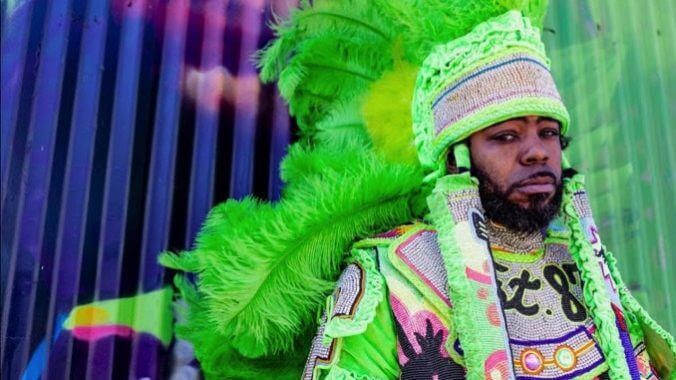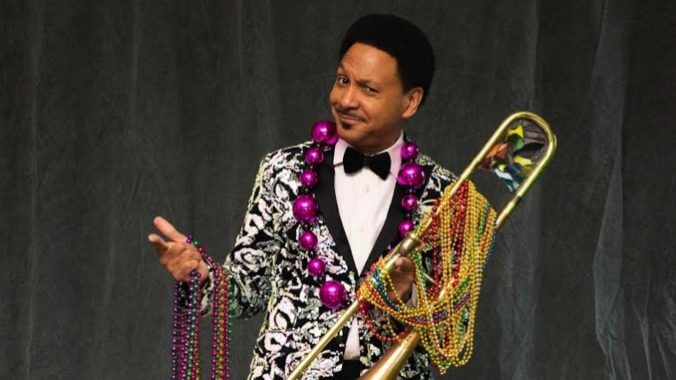The Best Reasons to Attend the New Orleans Jazz & Heritage Festival
A Deep Dive Into the Local Music of New Orleans

There are many reasons to go the annual New Orleans Jazz & Heritage Festival, which returns to the New Orleans Fairgrounds this year April 28-30 and May 4-7. You can go for the out-of-state headliners (which this year include Lizzo, Ed Sheeran, Dead & Company, Robert Plant & Alison Krauss, Wu Tang Clan, the Tedeschi-Trucks Band and Herbie Hancock). You can go for the great food and ambience of the city itself.
For me, the best reason to go is to hear Louisiana acts playing for Louisiana audiences—and to become a part of a chemistry that happens nowhere else. This is an especially rare treat when the acts are those that seldom tour outside the state. No region boasts a more distinctive musical culture, a culture that can’t be fully appreciated anywhere but on its own turf. As happens every spring, many of those acts are releasing new albums to coincide with Mardi Gras and Jazzfest.
The highest profile of those releases is Touch My Soul, Ivan Neville’s first solo album in almost 20 years. Music is often a family business in Louisiana, and Ivan is the crown prince in one of the greatest of those families. He’s the son of the nonpareil singer Aaron Neville and the nephew of Art, Charles and Cyril Neville, who long performed with Aaron as the Neville Brothers. Ivan’s cousins include singer Charmaine Neville (Charles’s daughter) and guitarist Ian Neville (Art’s son). Ivan and Ian have toured and recorded together in the band Dumpstaphunk.
While that band emphasized funk grooves and rock guitars, this solo album is more song-oriented. Ivan isn’t much of a lyricist, so the tracks need catchy chorus hooks and the hometown syncopation if they’re going to work. When those elements fall flat, as they do on the lead-off track, “Hey, All Together,” not even the guest vocals of Bonnie Raitt and Michael McDonald can save the day. But when the hook and second-line rhythms are as infectious as they are on “Greatest Place on Earth,” the horn parts added by Trombone Shorty and members of the Preservation Jazz Band have a sturdy launching pad.
Also in the latter category is “Dance Music Love,” given a funky twitch by Ivan’s clavinet and guest Doyle Bramhall II’s guitar. Less successful is “Touch My Soul,” whose ballad arrangement calls too much attention to such cliches as “A light that shines on me.” Ivan wrote or co-wrote all the songs but one: the Talking Heads’ “This Must Be the Place,” the album’s first single. The song is given new life by a dizzying island arrangement that reminds us that New Orleans is in many ways a Caribbean city.
If there’s a New Orleans musical family that rivals the Nevilles, it’s the Marsalises. Wynton and Branford are the best known names, but trombonist Delfeayo and vibist Jason are also top-notch musicians who have also inherited the spirit and high standards of their piano-playing father, the late Ellis Marsalis. In recent years, Delfeayo has been leading a big band called the Uptown Jazz Orchestra. On the new album, Uptown on Mardi Gras Day, the ensemble tackles the umbrella-twirling, sing-along standards that can be heard from marching bands, radios and barrooms all over the city during Carnival season.

Delfeayo Marsalis (Photo by Eric Waters, courtesy of BK Music)
Included on this album are two compositions from the brilliant Earl King (“Big Chief” and “Street Parade”) and two that featured pianist Art Neville on the original recordings (the Hawkettes’ “Mardi Gras Mambo” and the Meters’ “They All Asked for You”). Delfeayo adds four new compositions of his own, plausible candidates for the canon. It’s not easy to add sophisticated jazz solos and arrangements without spoiling the raucous bacchanalia of these songs, but Delfeayo and his bandmates pull it off. The vocals by Trombone Shorty’s brother Glen David Andrews are convincing, and the solos by Delfeayo, his brother Branford and the Dirty Dozen Brass Band’s Roger Lewis are a treat.
-

-

-

-

-

-

-

-

-

-

-

-

-

-

-

-

-

-

-

-

-

-

-

-

-

-

-

-

-

-

-

-

-

-

-

-

-

-

-

-








































